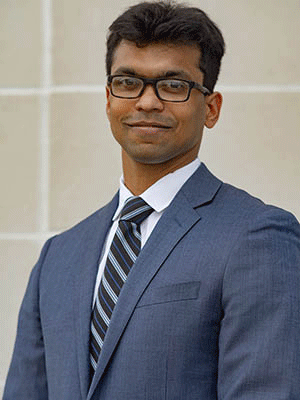
The future relies on the present, especially regarding global issues such as climate change and depleting natural resources that affect our daily lives. The efforts of scientists and engineers to find solutions to these ongoing problems are critical in creating a greener tomorrow.
Dr. Manish Shetty, assistant professor in the Artie McFerrin Department of Chemical Engineering at Texas A&M University, uses chemical engineering to find viable solutions to some of Earth’s problems in sustainability, climate change and clean energy.
A new member of the department, Shetty’s desire to make a difference influenced his decision to work for Texas A&M.
“Texas is a growing state that plays a big role when it comes to the conversation around energy based on sustainability and how the world is going to chart a path forward,” he said. “I believe that Texas A&M is one of the premier institutes in the state and the country, and I’d like to make contributions and have a spot at the table when discussing issues of this magnitude.”
Shetty has an extensive educational background that started at the Indian Institute of Technology, Bombay, where he received a bachelor’s and master’s degree in chemical engineering. He later attended the Massachusetts Institute of Technology, earning a doctoral degree in chemical engineering.
“The skill sets chemical engineers are equipped with can tackle problems of a generation in terms of making sustainable fuels, sustainable materials, dealing with the problems of climate change and extending the timescale of our humanity,” he said.

Shetty’s research focuses on catalysis for energy and sustainability. For example, many products, like crude oil, can be converted into value-added chemicals. Through experimentation, engineers have discovered ways to use plastic waste in fuels. Understanding how to repurpose materials through chemical reactions lies at the root of his research.
“I spend my time thinking about how we can redesign materials or use waste in different applications,” Shetty said. “In this way, chemical engineering can make an impact at the state, country and global levels.”
As he continues his research and shares knowledge in his classrooms, Shetty hopes to showcase the importance of his field of study to future generations.
“We have a diverse student body, including first-generation students, students of different cultural backgrounds and various socioeconomic statuses,” he said. “As a faculty member, I want to influence students of all backgrounds to contribute to society through chemical engineering.”